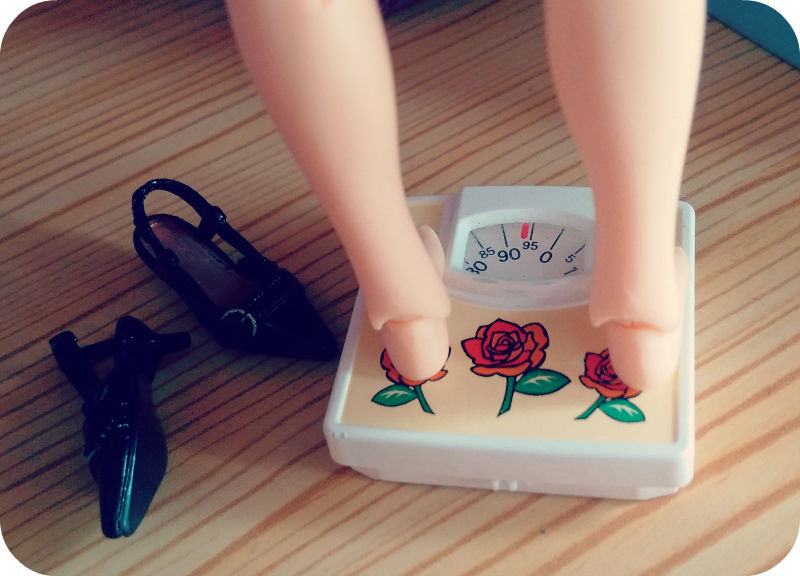We all know the frustration that comes when we dedicate ourselves to some serious lifestyle changes, yet don’t appear to be reaping the benefits. You’ve been at this for months now and while your family and friends always give you smiling assurances that you’re “doing great” you’re nowhere near seeing the results in the mirror and the difference on the scales is negligible. It just makes no sense. You’ve chosen a diet plan that you feel can work for you and you’re sticking to it.
You’re hitting the gym whenever you’re able and unlike Oscar Wilde, you’re able to resist temptation… Although if you struggle with this here are some psychologically proven tips to help you. Nonetheless, no matter how much you sweat at the gym and no matter how many cream cakes you thumb your nose at, you don’t appear to be losing weight as meaningfully as you’d expect to. This frustration is compounded when you see that others are losing weight despite (you strongly suspect) not working nearly as hard at it as you are.
Here we’ll look at some of the reasons why despite your efforts you’re still not losing weight, but first…
Are you being realistic with yourself?
First off, it’s entirely possible that you’re not doing anything wrong, but that your expectations of yourself simply aren’t realistic. Don’t take it personally, it’s a symptom of our culture of instant gratification. We want it all and we want it instantly. Unfortunately, changing your physical appearance simply doesn’t work that way.
Many of us wish we had the ability to lose weight within weeks but for most of us it may take several months before we even begin to see a difference. One of the most counterproductive and self destructive things that we can do is compare ourselves to others. We all have slightly different metabolisms (although these can be boosted with the right diet) just as we all have slightly different lifestyles and genetics.
While it can be helpful to set about your fitness and weight loss goals with a supportive friend the worst thing you can do is sabotage your self esteem by comparing their progress to yours.
It’s important to set achievable yet challenging and above all realistic goals. The best way to do this is by liaising with a personal trainer or a fitness instructor at your gym. They’ll help you to find a program of exercise that works in tandem with your diet to produce the best results.
It’s in your genes
The unfortunate but unavoidable truth is that no matter how hard we work at it, some of us are better genetically disposed to weight loss than others, just as some of us find ourselves gaining weight more readily than our friends, family and colleagues. Our DNA determines around 60% of how our bodies will respond to aerobic exercise. It also plays a huge part in our ability to effectively metabolize the foods we eat. Thus, you may have to work at it a little bit longer and fight for it a little bit harder than your peers… But that’s absolutely no reason to abandon the pursuit of your goals. It’s merely an adversity that you will overleap throughout the course of your journey.
You’re not getting enough sleep
From a very young age we’re taught that we need to get plenty of sleep, but when we reach our adult years we tend to assume that the reason our parents wanted to get us to bed early was so that they could enjoy a little time to themselves. That… may be true, but there are a great many reasons why not getting enough sleep can compromise your weight loss goals as well as impeding general health.
While you sleep your body uses this down time to repair injuries and grow the lean muscle mass that will result in a leaner body and a faster metabolism. Not only does not getting enough sleep prevent you from doing this, it also adversely affects your dietary habits.
When we don’t get enough sleep we’re much more predisposed to crave sugary, starchy and fatty foods. Dr Michael Breus, author of The Sleep Doctor’s Diet Plan found in his research that women who slept for less than four hours a day ate 300 more calories and 21 more grams of fat the next day.
There are lots of ways in which your lifestyle may be preventing you from getting enough sleep. Over-reliance on caffeine, stress and anxiety can all play a huge part but you should not underestimate the importance of a good mattress. If you find yourself waking up time after time in the middle of the night because of an ache or a twinge of pain you seriously need to change your mattress. By rule of thumb, you should change your mattress every 10 years. If you haven’t changed your mattress within this time, a new mattress could be one of the best investments you could make. It is important for people to change their mattress at least every 8 years. With this being said, if people are suffering from back pains, for example, maybe it means it is time to change the mattress sooner rather than later. From understanding that heavy people need more robust mattresses, changing the mattress if sleep is becoming an issue or even helping to improve back pains, mattresses are an important part of helping us relax. If you think that you need to consider changing your mattress for a newer one, you might want to consider looking at the mattresses offered by companies like Simba Sleep, for example. They might just help you to get a good night’s sleep on a comfortable mattress.
Check out Ted And Stacy’s Mattress Guides for some recommendations. Our recommendation is a hybrid bed which is pocket springs wrapped and topped with memory foam. This will help you get the combination of support and comfort that you need.
Your posture needs correcting
Just like they told you to go to bed early, your parents likely also told you about the importance of standing up straight. Not only does good posture stretch out your spine to ensure that you carry your weight well enabling you to look as slim and elegant as possible (even supermodels wouldn’t look good if they slouched, it can also help to accelerate your weight loss.
Poor posture is the root of a great many health problems including an increased risk of heart disease (by around 64%). Chronically poor posture impacts negatively on our metabolism and compromise our mobility, preventing us from getting the most out of our exercise at the gym. Though using a Posture Corrector Australia and taking other steps to correct your posture seems so small and insignificant, it can have a profound long term effect on your weight loss goals.
You’re still drinking alcohol
Lots of people watch their caloric intake like hawks, accounting for every bite they eat and diligently logging their consumption of macronutrients like protein, carbohydrates, fats and fiber… But they’re not so hot when it comes to logging their alcoholic intake. For some reason, lots of us are far more mindful of the effects of what we eat than what we drink.
If you’re serious about losing weight you should be drinking a lot of water (as in 3-4 liters a day) with the odd black coffee or green tea here and there for the good of your metabolism. And, hard as it may be to palate alcohol has to go. Even red wine (which isn’t as good for you as many people think). Not only does alcohol slow your metabolism, thereby impeding your weight loss goals but it’s also quite calorie dense in and of itself. Alcohol contains 7 calories per gram which is pretty high. Even if you’re on point with your diet, you’ll never achieve your full potential if you don’t abstain from alcohol.
You’re sitting too much
Most of us by necessity lead a fairly sedentary lifestyle. We spend the vast majority of our time sitting at a desk, when we need to get to work and back we drive and when we get home we more than likely collapse onto a sofa for a Netflix binge. All this sitting can’t be good for us, and even spending an hour at the gym 4 days a week can’t completely counteract the effects of all that sitting.
Although we’re accustomed to doing a lot of it, sitting is not really a natural composition for the human body. It puts a lot of pressure on our internal organs and can impede digestion meaning that those wonderful nutrients don’t get properly absorbed by your body. It can also contribute to a slower metabolism and lead not only to weight gain but increased risk of a range of health issues from back, neck and shoulder pain to depression.
You’re not switching up your exercise regimen
It’s fantastic that you’re getting to the gym even if it’s just once or twice a week. But, and be honest with yourself, when you get there are you pushing yourself as hard as you can or are you just treading water. Nobody can expect to achieve their fitness goals if they stick to the same old exercise routine.
Our bodies perform best under strain and while there’s comfort in getting better at the same exercises, you’ll quickly find yourself plateauing if you keep on doing the same exercises week in and week out. Have a talk to your personal trainer to see how you can shake yourself out of your comfort zone. A combination of weight training and high intensity interval training is proven to be effective in blitzing body fat while building the lean muscle mass that can boost your metabolism.





